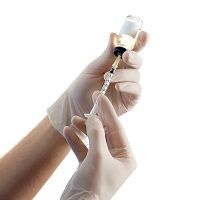Article
Organization Calls For Termination of Non-Medical Vaccine Exemptions
Author(s):
The American College of Physicians (ACP) announced their support of the ban on non-medical immunization exemptions during their summer Board of Regents meeting.

The American College of Physicians (ACP) announced their support of the ban on non-medical immunization exemptions during their summer Board of Regents meeting.
“Allowing exemptions based on non-medical reasons poses a risk both to the unvaccinated person and to public health,” Wayne J. Riley, MD, MPH, MBA, MACP, president of ACP said in a statement released by the group. “Intentionally unvaccinated individuals can pose a danger to the public, especially to individuals who cannot be vaccinated for medical reasons.”
The organization wasn’t the first to back this approach. At the American Medical Association (AMA) June meeting, the ACP joined the American Academy of Family Physicians (AAFP), American Academy of Pediatrics (AAP), and American College of Obstetrics and Gynecology (ACOG) in support of a similar measure launched by the group.
According to the press release, the AMA’s adopted policy entailed public health officials creating clear guidelines that would determine which vaccines are mandatory for schools in addition to other public places. The AMA also added a provision that only allowed exemptions on a medical basis.
Among their main determination, the ACP endorsed the following policies:
â— Across-the-board vaccinations based on rules put forth by the US Advisory Committee on Immunization Practices (ACIP), the National Vaccine Advisory Committee (NVAC), and the Centers for Disease Control and Prevention (CDC).
â— Mandating these recommended vaccinations through state laws
â— States enacting legislation which end non-medical vaccine exemptions
“Physicians should help educate patients and parents about the risks of vaccine preventable diseases and the safety and effectiveness of vaccines. Outbreaks of vaccine-preventable diseases have been linked to communities of unvaccinated and under-vaccinated individuals,” Riley said.
Riley concluded, “Studies indicate that the easier it is to receive an exemption, the higher the rate of exemptions in a particular state. As the number of exemptions increases, the risk of vaccine-preventable disease has been found to increase. Exemptions from evidence-based immunization requirements should be limited to medical indications in order to protect the public’s health.”


